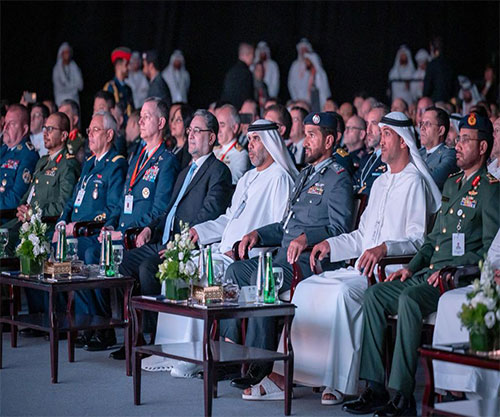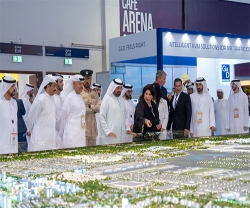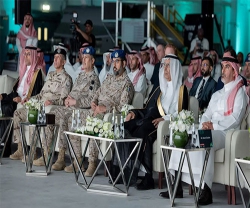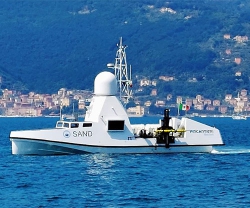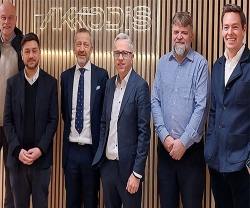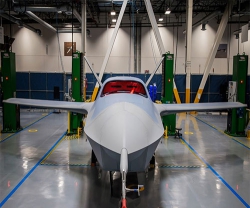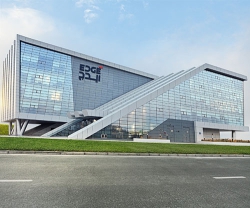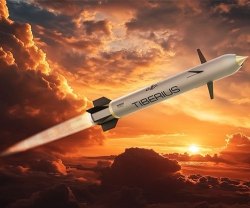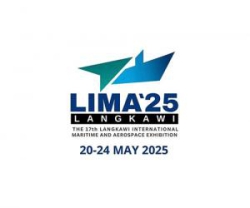Under the patronage of His Highness Sheikh Hazza bin Zayed Al Nahyan, Deputy Ruler of Abu Dhabi, the UMEX and SimTEX 2024 Conference concluded at ADNEC Monday after a lively series of presentations, panel discussions and keynote speeches that brought some of the world’s leading practitioners and experts from the unmanned systems sector together to discuss key opportunities and challenges.
Taking place under the theme of ‘Soaring to new heights: impact of new technologies in evolving unmanned systems era’, a keynote opening address by H.E. Omran Sharaf, Assistant Minister of Foreign Affairs and International Cooperation for Advanced Science and Technology, UAE, launched the conference. His Excellency explored the potential of leveraging knowledge through the Fourth Industrial Revolution and AI to enhance the UAE's leadership in defence and civil applications of unmanned systems.
The next session, entitled ‘Artificial Intelligence: An overview of the current landscape and AI impact on the future of intelligent autonomous systems’, featured a presentation by Fakhreddine (Fakhri) Karray, Professor of Machine Learning at Mohamed bin Zayed University of Artificial Intelligence (MBZUAI), on the impact of generative AI on unmanned systems.
This was followed by a panel on ‘Harnessing Disruptive Technologies: The true potential of technological advancements of unmanned systems’ led by Naoufer Ramoul, Senior TV Presenter/Producer at Dubai Media Incorporated (DMI), and featuring Dr. Fan Zhu, Chief Technology Officer with Bayanat, Stanislas Gourlez de La Motte, Navy Advisor to the Chairman and CEO of Naval Group, and Dr. Ray O. Johnson, CEO of TII. The panelists noted the need for leadership by governments in investing in and harnessing disruptive technologies and the importance of 'AI fluency' among the emerging generation of young UAE technologists.
Next was a keynote speech by Dr. Yehya Al Marzooqi, Advisor - CEO Office, Tawazun Economic Council, on ‘The impact of autonomous systems in society and industry beyond defence’ that covered new uses of unmanned systems in the health, education, and agriculture sectors, among others, subject to their safety and ethical regulation.
The day’s agenda resumed after a break with a fireside chat on ‘Techniques and Technologies: Understanding and mitigating the evolving threat posed by unmanned systems’ featuring Robert Harward VADM, USN (Ret.) SEAL, Executive Vice President of International Business & Strategy, Shield AI, and Col. Dr. Rashed Aldhaheri, Assistant Professor of International Relations at the UAE National Defence College, discussed the growing threat posed by drones used in ‘swarming’ tactics.
Following this was a panel discussion on 'The future of military operations: Integrating legacy systems with intelligent unmanned systems through manned/unmanned teaming' featuring Vice Admiral Brad Cooper, Commander, U.S. Naval Forces Central Command, H.E. James Morse CB, President & CEO of Rabdan Academy, Major General Lee Bo-hyung, Inaugural Commander, Drone Operations Command - South Korea, Dr. Robert Sadowski, Army Chief Roboticist, Ground Vehicle Systems Centre, AFC Combat Capabilities Development Centre, with Prof Daniel Baltrusaitis, Consultant at Defence Sector acting as discussant.
Key points made by the panellists included the effectiveness of unmanned systems in enhancing traditional naval patrolling of large sea areas and the need for countries to think about countering as much as exploitation in a world of technology proliferation.
A presentation by Dr. Sherif Hashem, Information Sciences and Technology, George Mason University (GMU) on ‘Investing in countermeasures and cybersecurity in a rapidly changing threat landscape and all-to-all connectivity’ covered the growth in cyber-attacks in recent years and the measures taken by governments around the world to counter this threat.
The day culminated with a presentation by H.E Dr. Saeed Al Dhaheri, Director, Centre for Futures Studies, University of Dubai on ‘Laws on LAWS: The status of regulation on Lethal Autonomous Weapon Systems’. His Excellency argued that ‘AI-driven lethality’ presents serious moral and ethical questions, and that such unmanned systems could be banned or at least, be tightly regulated. This presentation was followed by closing remarks from H.E Dr. Mohamed Al Kuwaiti, Head of Cybersecurity, UAE Government.

